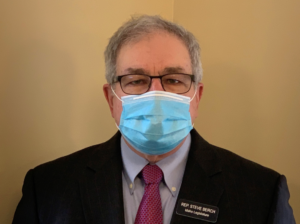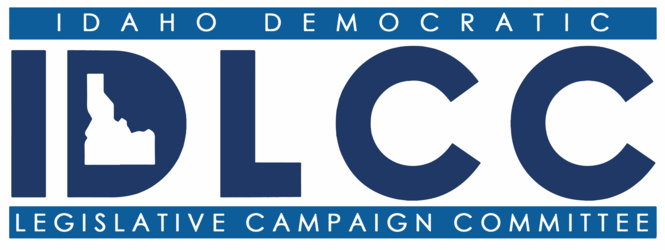During the 2020 campaign, my opponent and his party ran on the slogan, “Faith Family Freedom.” Those are great values. They aren’t partisan values – they’re American values. People of all political stripes attend the church of their choice. Everyone, regardless of their political affiliation, wants the best for their family and loved ones. And Arlington cemetery is the final resting place for Republicans and Democrats alike who died to protect and defend our country’s freedom.
But there is one value missing from their list: Community. This omission reveals a growing concern as the legislature shifts toward prioritizing individual liberties over protecting the interests of the larger community. A civilized society strikes a healthy balance between the two. Extremism in either direction serves more to divide us than unite us.

Rep. Steve Berch
COVID is challenging our ability to strike this balance, especially when it comes to masks. Consider this: if our young men and women in the military can don battlefield attire and armament from head-to-toe in hostile climates, then we should all be able to endure the inconvenience of wearing a mask when we’re around other people. Some don’t wear a mask because they question the severity or even the existence of a pandemic and want the Governor to lift the COVID emergency order. One legislator actually stood on the floor of the House and publicly declared the pandemic was over – while people are scrambling to get vaccinated!
I do not support lifting the Governor’s emergency order at this time (A resolution ordering this, SCR101, is stuck in a Senate committee). Here are the factors I take into consideration when making a determination – which can change with new information:
- Mortality rates. The loss of any life due to COVID is tragic, even if the rate may be less than what was originally projected. This is an important – but not the only – criteria for reaching a determination.
- Morbidity rates (people who survive but suffer long-term or permanent damage to their health). This number is unknown, and it will take time to quantify. We do know COVID can result in long-term convalescence periods and possibly life-long problems that can be severely debilitating (e.g. “COVID lung”).
- Hospital beds. As hospital beds fill up with COVID patients, and/or hospital staff is reduced due to self-quarantine, an increasing number of non-COVID patients can’t get the life-saving medical care they need because healthcare systems are pushed beyond capacity. This results in people potentially dying from anything requiring ICU care, not just COVID. This factor will ebb and flow with spikes and decreases in infection rates.
- Mutations. The more wide-spread COVID infects humans, the greater opportunity for the virus to mutate into strains that are more contagious and more lethal. One identified strain may be 30-70% more contagious, and another may be more lethal and more resistant to the vaccines currently being administered.
- Vaccinations. This may be the most important factor, now that vaccines have started to be administered. The quicker we can vaccinate the population, the quicker we can get back to a more normal existence, but we must remain vigilant as the virus spreads and mutates.
I try to balance both the immediate and long-term perspective when making decisions. I value the input and advice of credible sources whose knowledge exceeds mine (including our state epidemiologist), as well as people with years of experience in containing pandemics and other highly infectious diseases (such as SARS and Ebola).
The definition of a patriot is: “a person who vigorously supports their country.” I don’t like wearing a mask – but I do. It’s just one small patriotic action I can take to protect and support others in my community, my country.

Recent Comments